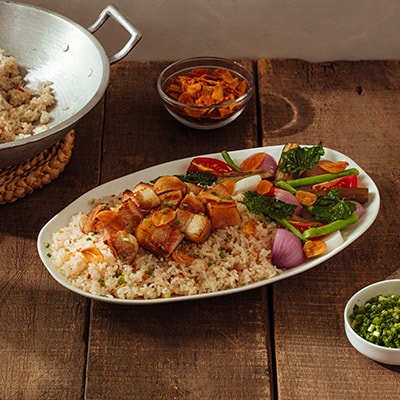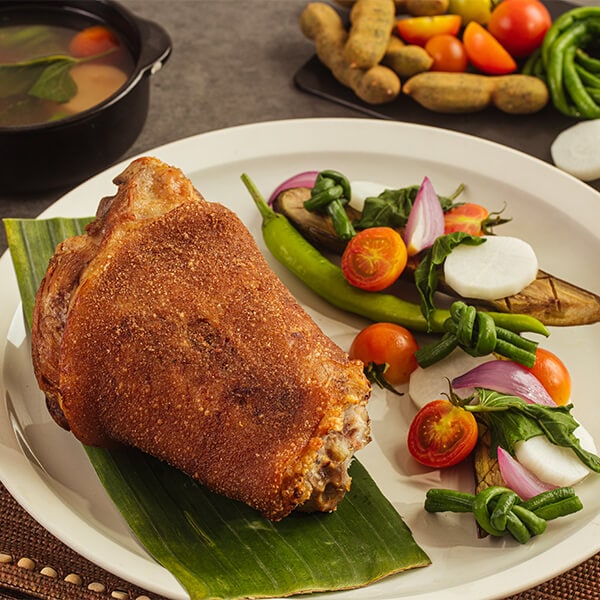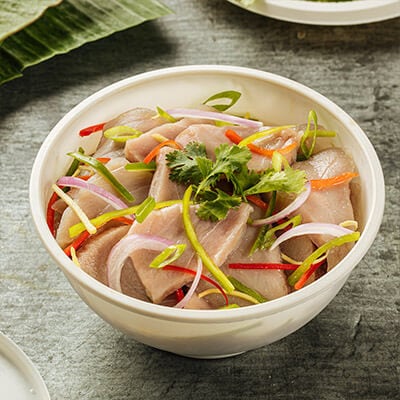The food and beverage scene in the Philippines is buzzing, with a survey by the Philippine Statistics Authority reporting around 30,000 establishments in the food service sector. In such a crowded market, one of the simplest yet most powerful ways to stand out is by choosing the right identity. That starts with creative and memorable food business name ideas.
A business name is more than just a label. It sparks curiosity, builds instant recall, and helps customers remember you long after they’ve finished their meal. The right choice can attract diners, set the tone for your brand, and even drive word of mouth. In this guide, you’ll find inspiring food brand name ideas, plus practical tips and common mistakes to avoid so you can launch your venture with confidence.
Food Business Name Ideas to Kickstart Your Brand
Use these food business names as a springboard for your own brainstorming. Each one is designed to grab attention, build recall, and give your business a head start.
Unique food business name ideas
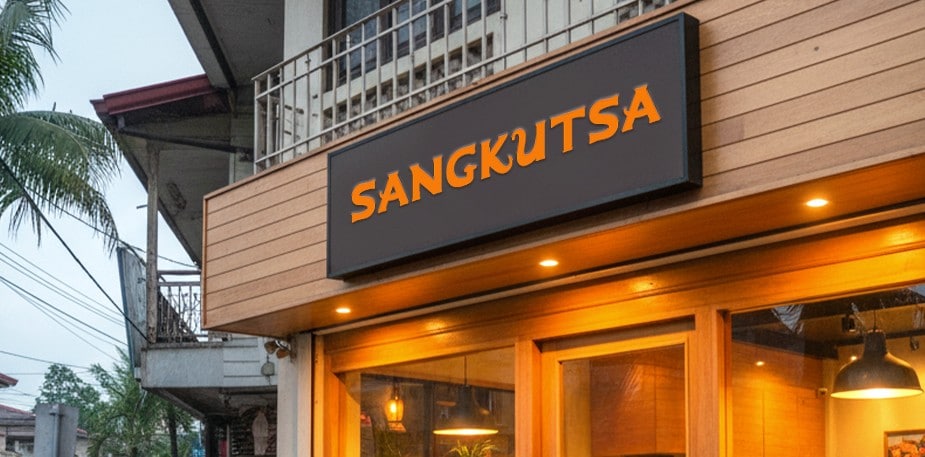
These are fresh, creative, and built to stand out. If you want a unique name for business food, start here.
1. Barangay Binalot
2. Ulam Machine
3. Lasap
4. Best of Broth Worlds
5. Kalan
6. Sangkutsa
7. Food Stop
8. Lutong Likha
9. Gng. Gisa
10. Pina-Sarap
Timeless and classic names
Warm, familiar, and designed to last across generations.
1. Kusina ni Maria
2. Sunny Supper
3. The Acacia Table
4. Riverside
5. Silver Spoon
6. The Daily Pot
Creative food business name ideas
If you need a catchy name for food business, this list can help. These also double as creative food company names.
1. Timpla Run
2. Go Go Grill
3. Snap & Pop
4. Eats of Glory
5. Lasa-Lasa
6. Munch Manila
7. Bite Right
8. Kitchen King
9. Sawsaw City
10. Queen’s Cravings
Seafood business name ideas
Fresh names for fish and seafood concepts.
1. Hook Hub
2. Sinker
3. Fishy Agenda
4. Big Bangus Theory
5. Shrimp Patrol
6. I Sea U
7. Pusit to the Limit
8. Beach Please
Professional food company name ideas
Perfect for catering businesses, multi-branch operations, or B2B clients.
1. Arc & Ladle Foods
2. Harvest Provisions
3. Nara &Vine Dining
4. North Star Culinary Group
5. Creative Kitchens PH
6. Blue Apron Hospitality
7. Prime Pantry Works
8. Mean Meals Manila
9. Sampaguita Studios
10. Pepper & Province
Café and beverage name ideas
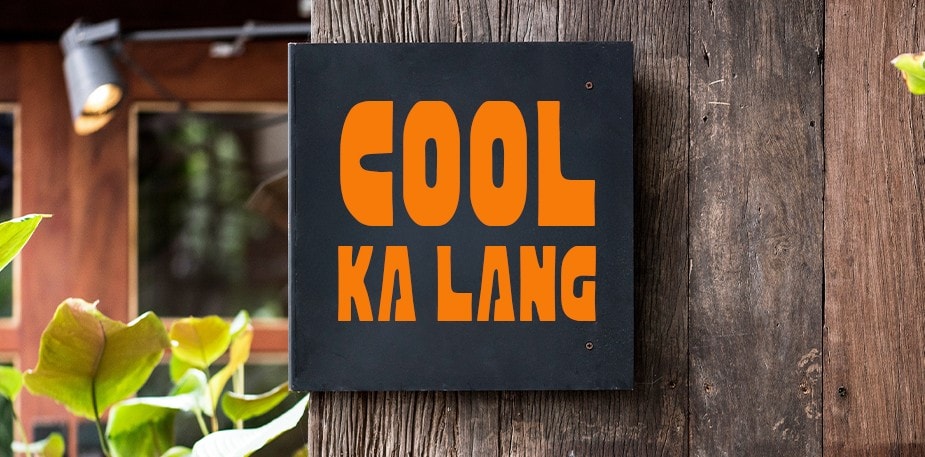
Ideal for coffee shops, milk tea, and beverage stalls.
1. Sip, Sip, Hooray
2. The Final Straw
3. Brew-mance
4. Mother Tea-resa
5. Mug & Matter
6. 6AM
7. Cool Ka Lang
8. Kape’t Kakanin
Location-based food business name ideas
Use city or region names for local pride and stronger visibility. Many of these also function as Filipino food business name ideas and even food store name ideas if you run retail.
1. Manda Merienda Market
2. Ceburger
3. Presko sa Palawan
4. Bacolod Grill House
5. Salo-salo sa Silang
6. Mari & Kina
7. San Juan and Only
8. Kalibo’s Kanto Kitchen
9. Davao Dinner Club
10. Pasig Pantry Co.
Bakery and pastry business name ideas
Sweet names perfect for breads, cakes, and pastries. These are terrific references if you’re building a homemade food business names list for home baking.
1. Butter Barrio
2. Wall Flour
3. Papa Panadero
4. Cross-aints
5. Pan de Express
6. Knead & Knot
7. Sugar Princess
8. Keyk
Street food business name ideas

Great for kiosks, food carts, and roadside stalls.
1. Canton sa Kanto
2. Kebab Marley
3. Fishball Federation
4. Tinusok HQ
5. Isaw D Sign
6. Balut-lut de Leon
7. Halo-halo Love Goodbye
8. Beshie Burger
9. Siomai Gosh
10. Mani Pacquaio
Plant-based business name ideas
Highlight fresh, green, and sustainable eating.
1. Plantasy
2. The Greenest Side
3. Sprouted Soul
4. Pinya Sarap
5. Luntian
6. Gulay Galing
Modern and minimalist names
Clean and sleek names for contemporary food brands.
1. Hot Bowl
2. Neut
3. Slate & Soy
4. Quiet Qitchen
5. Plain & Pepper
6. Beyond Noon
7. Rosemary
8. Kiln Coffee
9. Mono & Miso
10. Trop-A
BBQ and grill name ideas

Bold names that emphasize smoky, grilled flavors.
1. Coal Co.
2. Baste & Brush
3. Inihaw Do You Do
4. Smoke Signals
5. Grilled Greats
6. Oh My Grill
7. Sili City
8. Char!
Tips for Choosing a Food Business Name
Choosing the best name for your food business goes beyond being witty or creative. The right name sets the tone for how customers will experience your brand. Use these tips as a guide when brainstorming:
● Keep it short and sweet: Aim for two or three words that are easy to say, spell, and remember.
● Add food cues: Words like kitchen, grill, table, or pandesal instantly signal that you’re in the food business.
● Think long term: Avoid limiting yourself with a single dish name. Choose something flexible that works even as your menu grows.
● Test before deciding: Say the name out loud, write it down, and ask for feedback from friends or potential customers.
● Secure your identity: Check availability with the DTI, domain registrars, and social media handles.
● Infuse local flavor: Filipino food business name ideas with Tagalog or regional words often spark pride and connect with the community. However, if your restaurant concept isn’t Pinoy, these names may feel out of place.
● Make it meaningful: The strongest names carry a story, whether about your roots, your concept, or the dining experience you want to deliver.
Mistakes to Avoid When Naming Your Food Business
Even the best ideas can flop if you’re not careful. Here are naming mistakes you should avoid.
1. You chose a “difficult” name with poor recall.
Avoid using a name that’s difficult to pronounce, spell, or read. Long names are equally problematic, often forgettable and less likely to spread by word of mouth.
Notice how well-loved food chains often stick to short, simple names. One prime example is “Pete’s Super Submarines.” The name was clunky and unmemorable, and even misheard on the radio as “pizza marines.” After several overhauls, the brand reemerged with the concise, powerful name “SUBWAY.”
Going overboard with overly creative names can be just as ineffective. A quirky name like “Supercalifritesilistic” might grab attention, but it leaves diners clueless about your offerings. The best food business names strike the right balance: simple, clear, and catchy. They should also be easy to spell and share online, which is vital if you want your brand to gain traction or go viral on social media.
2. You went with something too generic.
Many start-up owners take the easy route by picking a generic name, missing out on the chance to give their company a unique identity. It’s tempting to fall into names like Food Corner, Silog House, or Burger Express. Instead, consider a name that reflects your products, services, and values. Make the association obvious, creative, and catchy for better brand recognition.
Avoid being overly descriptive by naming your business after a specific product. For example, don’t name your establishment after your bestselling crispy pata, even if it uniquely uses Knorr Sinigang sa Sampalok in the recipe. Doing so might make it harder for you to pivot and expand your menu with cheeseburgers, tacos, and dirty fries.
3. You didn’t do a competitor check.
Performing a quick scan of industry competitors before finalizing your food business name is always a valuable practice. (Tip: Use DTI’s Business Name Registration System to check for existing registered names.) Make sure your identity doesn’t closely resemble a rival or share a similar concept.
4. You failed to test it with your target market.
Many entrepreneurs often become attached to the first name they come up with for their food business. However, it’s also beneficial to gather feedback from potential customers. One effective approach is to create logos with various designs, each featuring a shortlisted name idea. Share these options through social media or with a control group and gather valuable input.
5. You didn’t check its digital presence.
With the decline of traditional media advertising, social media marketing has become the go-to strategy for reaching a wider audience. So, when considering potential names for your business, countercheck their availability as domains and social media handles. This process helps determine if the name is already taken or associated with illegal activities or goods.
Strong food business name ideas can make all the difference in attracting customers and setting your brand apart. A well-chosen name builds identity, sparks recall, and gives your venture a competitive edge from day one. Take the time to brainstorm, test, and refine until you find the perfect fit. Remember: a memorable name is one of the best investments you can make for long-term success in the food industry.
